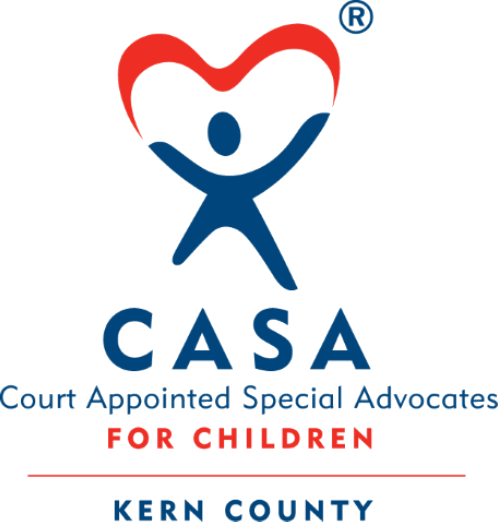What You Need to Know About Forming a Corporation
Note: We can discuss possible advantages of each type of organization and help you incorporate, it is the clients choice as to which organization is the best fit. None of the information below is designed to be specific legal or tax advice. For operating agreements, liability protection, or other legal advice, please speak to an attorney.
- What I need to get your entity started
- What type of organization do you want (S-Corp, LLC, Partnership)?
- The name of the organization. I will check to see if this name is available with the Secretary of State ( SOS) prior to completing forms.
- Business Address (cannot be a PO Box)
- Mailing address (if different)
- Do you want me to be your agent of service? It does not cost anything. It just means that we get a copy of certain notices issued regarding the entity, and will be serverd on your behalf if you are party to a lawsuit
- If you want to specify the number of shares being issued, give me the amount. Generally, we use 1,000.
- Name / Address / Social / Bday for all shareholders
- The cost is $450.00 for my service which includes the filing fees that will be paid to the state on your behalf. You will need to forward this in advance of work being performed. The easiest way is to send through Zelle using my email address or phone number. There are many other ways to pay (click here to see ways to pay).
- If you want us to complete your first Statement of Information, which is required to be filed within 90 days of forming the corp, there will be an additional 125.00 fee which includes the filing fees. Please let us know if you want us to perform that service for you. If not, you will receive a notice from the State of California with instructions to do it yourself.
- What you will receive
- California Secretary of State of CA paperwork. Normally, we will submit this for you directly. In some cases, you will have to sign and mail this with a check to the SOS for about $100.00.
- Federal EIN and copy of SS4 paperwork
- IRS election for taxation if needed
- If you want a corporate binder, stock certificates and stamp (not required), we can prepare that for an additional 175.00.
- All of the different types of organizations are similar in many ways, but differ in the way they are taxed.
- All of these entities are considered a type of corporation and will be referred to that way below.
- All of these flow through entities are subject to the state minimum franchise fee of 800.00 per year, but this can be higher if the net income is higher. In the first year of business, if it has no gains this fee can be waived.
- All of these organizations require an annual Statement of Information (SOI) to be filed with the state of California SOS within 90 days of formation and then annually. It can be done online and is very simple. There is a $25 filing fee that is due when you file it.
- LLC
- In its initial form an LLC is technically a partnership, but can be modified to be taxed as an S-Corp or a C-Corp.
- Can be treated as a disregarded entity if it has only one owner (or husband and wife owners). Disregarded means that it does not have to file its own tax return, but it is claimed as business income on the Schedule C of the personal tax return of the owner, and requires special forms to be filed with the State of CA along with the state return.
- If it has multiple members that are not husband and wife, it files its own tax return and issues a K1 to each partner to claim their portion of income on their personal return. This income, if it is business income, will be subject to the additional 15% Self-Employment tax (SE tax). This should be avoided because it is an extra tax.
- LLC’s are usually only good for holding real estate, which is not subject to SE tax.
- LLC Taxed an an S-Corp - We would usually not setup an organization in this way, but if a client comes to us with an LLC that is already formed, we may modify it for them.
- Some paperwork is filed with the IRS, which also counts for the state, that allows it to file the same forms that an Scorp would file, and allow it to be taxed as an Scorp. See advantages below under Scorp.
- S-Corp - are a separate entity that require their own tax return, and can have as few as 1 shareholder.
- The income from this can be split between business earnings and passive income as a shareholder. Our goal is to minimize the SE tax. Using this structure can save the client as much as 10k per year in SE tax on business income.
- To accomplish the split, it is necessary to setup a payroll for the corp with a reasonable salary being paid to the owner. The difference between the salary and the total net income, is the passive gains, which are not subject to the SE (FICA) tax. Reasonable salaries must be documented by the owner.
- Liability Protection - both LLC’s (even if disregarded) and Scorps provide liability protection. If the business is sued, only business assets can be taken as long as comingling does not cause the corporation veil to be pierced.
- Comingling – This occurs when the corporate accounts are used to pay personal expenses, or corporate assets are used for personal use. Thus, there is no distinction between the person and the corp. This would nullify the corporate liability protection.
- Avoiding Comingling – The corporation should have its own bank account. All income received, even in cash, should be deposited into the corporate account, and all direct corporate expenses should be paid from the corporate account.
- Mixed items should be avoided – there are some items that are partially personal and business that should not be owned by or paid by the corporation. The two most common are:
- Cell phone – Unless you have one number that is under a business plan and used strictly for business, you should not pay your cell phone bill from the corporate accounts.
- Vehicles – Unless a vehicle is used solely for business purposes and is never used for personal purposes, it should not be purchased by, or paid for by the corp. No lease payments, regular payments, gas, or insurance should be paid from corporate accounts unless it is solely business use.
- There are other items, like travel for business where your family accompanied you that should not be paid from corporate accounts.
- These mixed items are still deductible but not through the corp. They should be paid for by a personal business account, and deducted against the portion of income that is assigned as contractor pay to the shareholder.
- Transferring money – You can transfer money out of these accounts to your personal accounts and visa versa. This does not cause a problem. It is the direct paying of bills that causes the problem.
- Setting up Bank Accounts
- Corporate account – In order to setup a corporate account you will need the Secretary of State corporate filing, your EIN, and commonly an FBN statements and city business license to setup a corporate bank account. When we form an organization for you, we provide the SOS filing and the EIN. Info on how to get the other items can be found here Resources Page.
- Personal Business Account – this is where you will pay for all mixed items. Avoid using this for anything that is truly personal, such as food. Note that as of 2018 only travel meals are partially deductible, but no other meals and entertainment are deductible.
- Legal Information
- If you are partnering with someone in the creation of a corporation you should have an operating agreement and bylaws. Most partnerships eventually end, so it is good to begin with the end in mind. An operating agreement lays out who will do what work, how pay and profit splits will be calculated, how stock is owned and valued, how someone can exit the business, and much more. I cannot provide direction on this because it is considered legal advice, but I recommend speaking to a lawyer about having one drafted. There are also a lot of good online resources.
- If you have an S-Corp, you are required to take a reasonable salary, paid through payroll. We can help you set this up using your existing accounting software or a third-party company.










